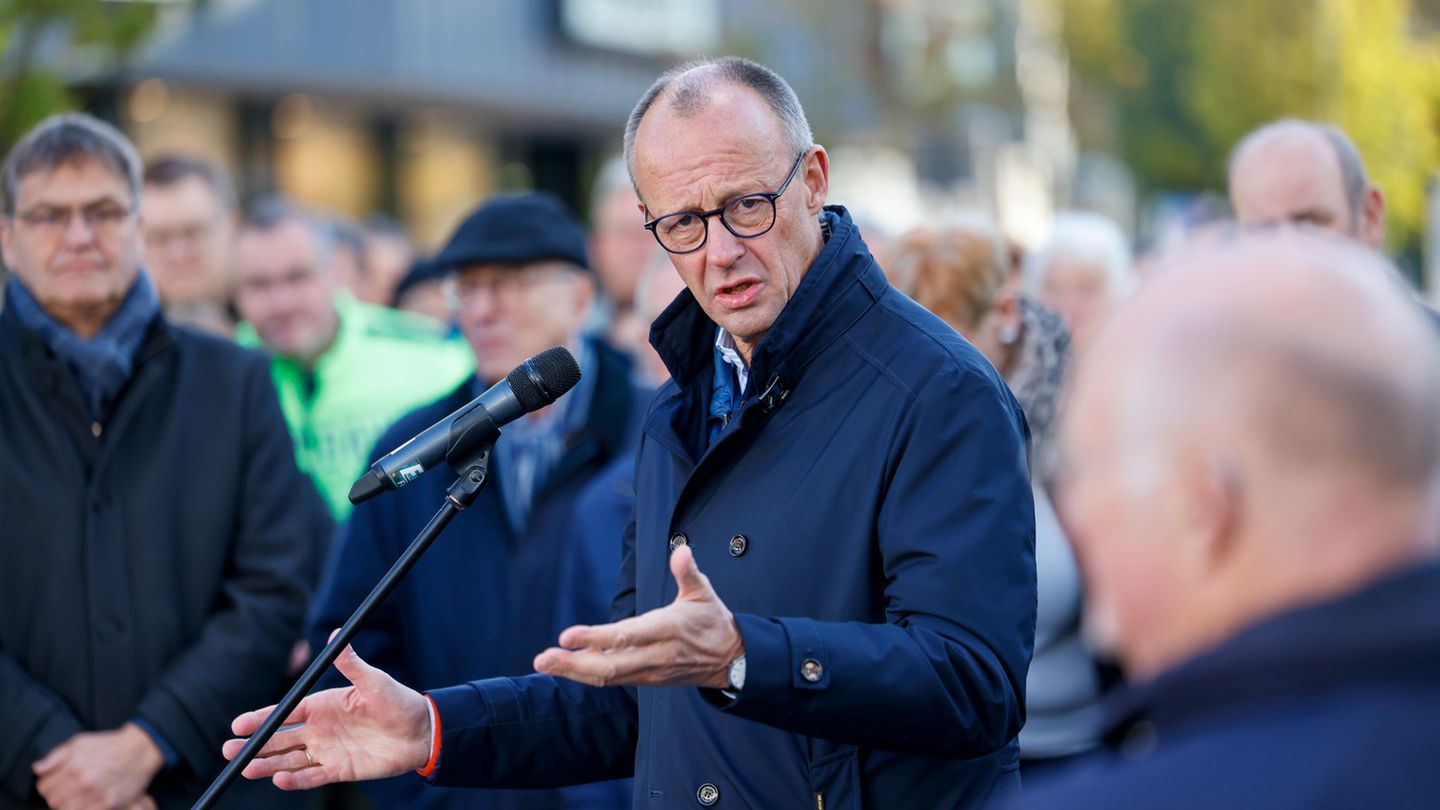The chairmen of committees in the Bundestag play an important role. The AfD is currently excluded from this office. Will this stand up to scrutiny by the Federal Constitutional Court?
Important decisions in the Bundestag are often prepared in committees in which members of parliament from different factions work together. The committee chairmen play a central role in this. The AfD is currently excluded from these top positions – and has therefore appealed to the Federal Constitutional Court. The Karlsruhe judges are now about to give their verdict. The decision could have far-reaching consequences for parliamentary work in the Bundestag. The most important questions and answers at a glance:
What does a committee chair do?
Bundestag committees are reappointed and filled in each legislative period. As a rule, each federal ministry has a standing committee, but additional committees can also be added for individual policy areas. Each committee consists of a chair, a deputy and a certain number of members. “The committee chairs have an important position,” says the Bundestag’s website. “They prepare the meetings, convene them and chair them.”
How are the positions filled?
Which parliamentary group chairs which committee is actually negotiated in the Council of Elders. If there is no agreement – as was the case after the federal election in September 2021 – an access order is calculated based on the strength of the parliamentary groups. According to this, the parliamentary groups can take turns choosing committees. The AfD thus took over the Interior and Health Committees as well as the Committee on Development Cooperation.
Why does the AfD not chair any committees?
Because there was opposition from the other parliamentary groups to the AfD’s chairmanship, an election had to be held. Accordingly, there were secret elections in all three committees on December 15, 2021 – and all three AfD candidates clearly missed the required majority. A second attempt on January 12, 2022 ended with the same result. The deputy chairmen are currently leading the committees concerned.
What are the AfD’s complaints directed against?
The AfD parliamentary group has appealed to the Constitutional Court in two organ dispute proceedings. It believes that its rights to equal treatment as a parliamentary group, to effective opposition and to fair and loyal application of the Rules of Procedure of the German Bundestag have been violated. On the one hand, it is protesting against the non-election of its candidates to chair the three relevant Bundestag committees (case no. 2BvE 10/21).
On the other hand, it is taking action against the removal of the then Chairman of the Legal Affairs Committee, Stephan Brandner, in November 2019 (ref. 2 BvE 1/20). After several scandals, all committee members with the exception of the AfD MPs voted for his removal in the last legislative period – a unique event in the history of the Bundestag.
What are the AfD’s chances?
That’s difficult to say. In June 2022, the Federal Constitutional Court rejected an urgent application by the AfD to have its three failed candidates provisionally appointed as chairpersons against the will of the other MPs. The judges, however, stated that it was “not completely ruled out from the outset” that the rights of the parliamentary group had been violated. In urgent proceedings, the main question is whether the plaintiff will suffer irreversible disadvantages until the court makes a final decision – the facts of the case are not yet examined in depth.
In May 2020, the judges also rejected an urgent application by the AfD to reinstate Brandner as committee chairman – on the grounds, among other things, that the AfD could reduce its own impact by naming another candidate. But they also referred to the principle of equal treatment of the parliamentary groups. An effective opposition must not be dependent on the goodwill of the majority.
What could a verdict look like?
In its decision on the AfD’s urgent application in 2022, the Karlsruhe Senate already took a look at the central questions of the main proceedings. For example, it will have to be clarified whether the Bundestag’s rules of procedure allow a free election of committee chairs, whether this would impair the rights of the AfD parliamentary group and whether this would be permissible in view of the purpose of the election. The court could therefore theoretically determine that the rules of procedure do not allow for an election or – if the court believes that they do allow an election – that the AfD’s rights are restricted. Then the rules of procedure themselves might also have to be changed.
Have there been similar decisions by the court before?
There was already a dispute in Karlsruhe over a position in the Bundestag presidium – where the AfD has not been represented since it entered the Bundestag in 2017. The other parties had denied all AfD candidates for one of the deputy posts the required majority in several votes. The Federal Constitutional Court ruled here in March 2022 that the right to equal consideration is subject to election by the other MPs. There is no unrestricted right to a place in the presidium.
Source: Stern
I have been working in the news industry for over 6 years, first as a reporter and now as an editor. I have covered politics extensively, and my work has appeared in major newspapers and online news outlets around the world. In addition to my writing, I also contribute regularly to 24 Hours World.




